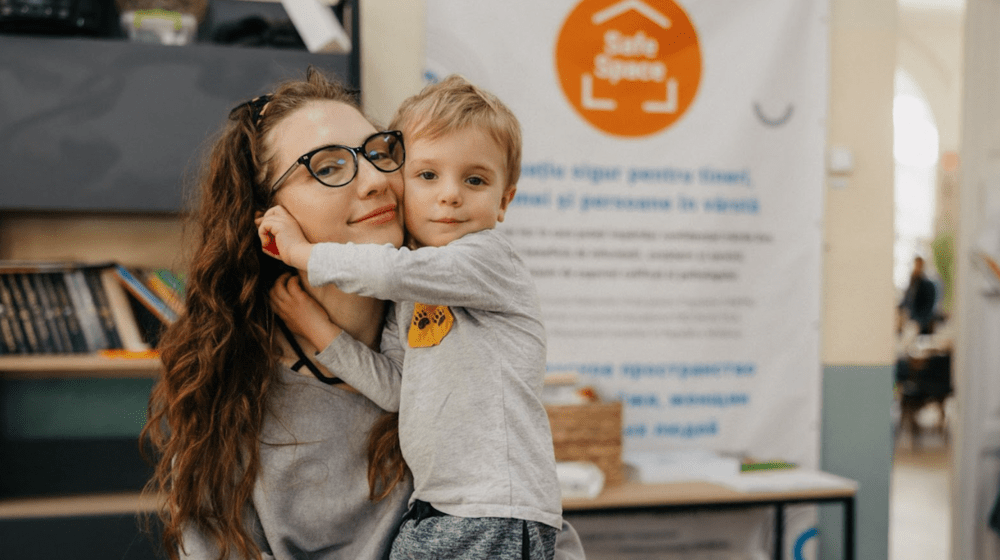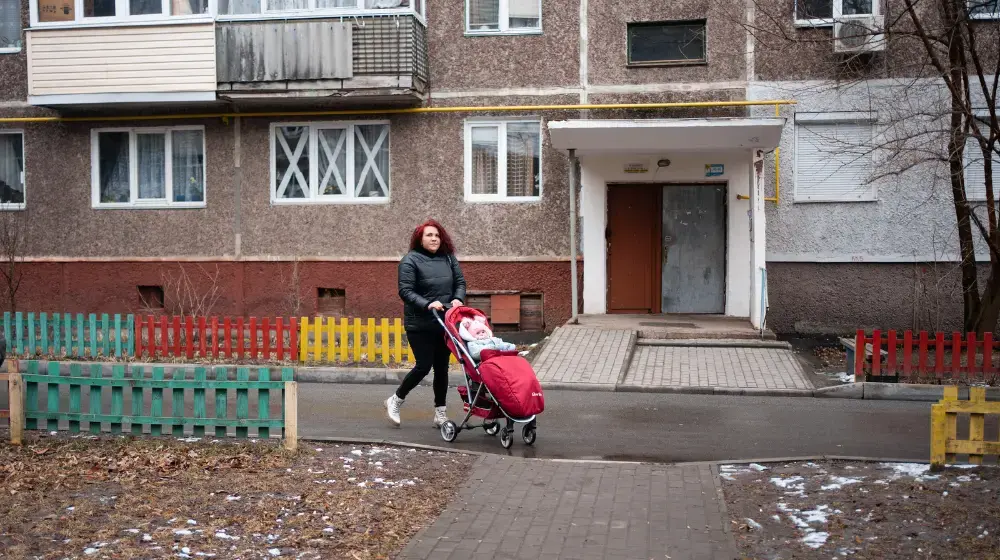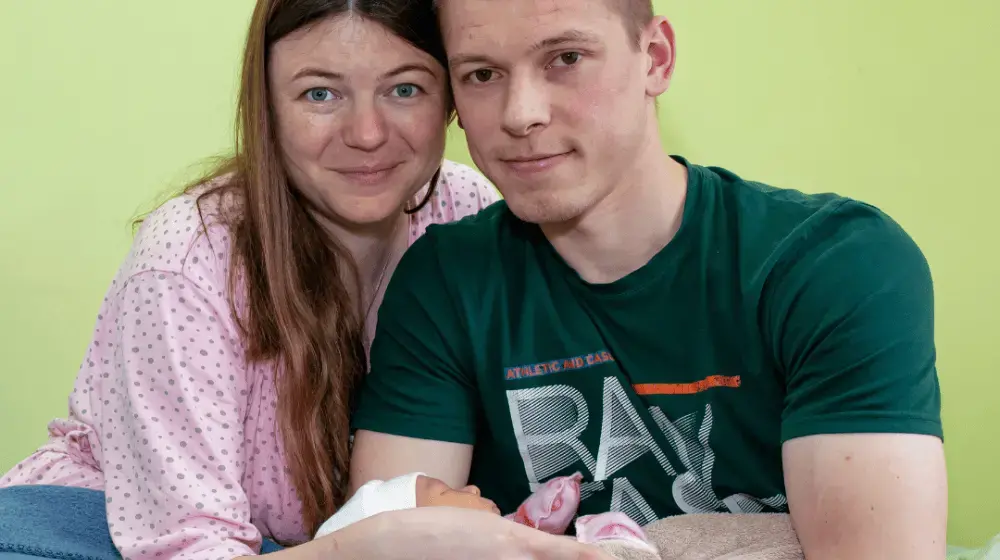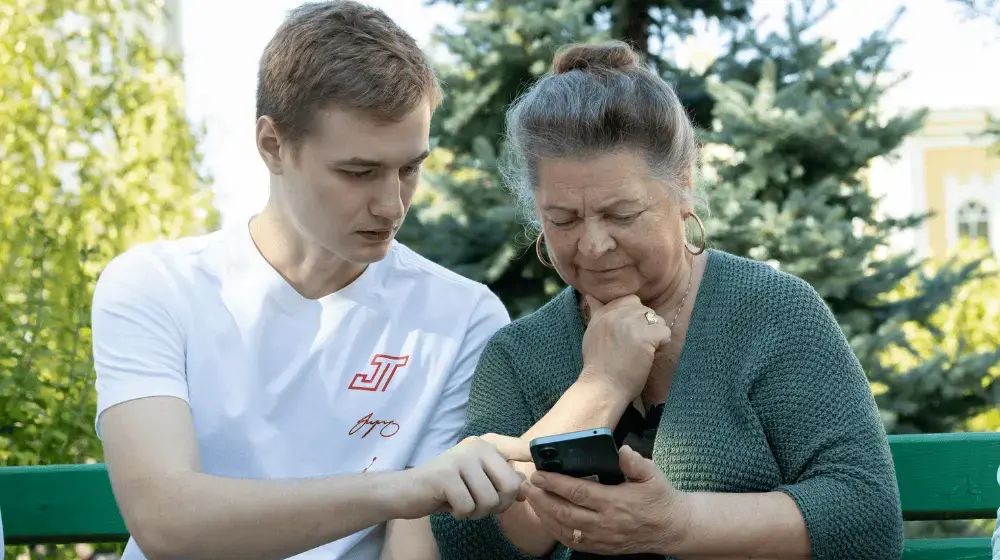"I want to help because I am a refugee and a mother myself,” said Anastasia Chernenkaya, 33.
Anastasia fled Odesa and arrived in Moldova in February. At the beginning of March, she set up a Telegram channel - “Mothers in Chisinau” - for three friends who needed help with accommodation and essential services for themselves and their children.
One year after Russia’s full-scale invasion of Ukraine, Anastasia’s channel is making a difference to the lives of thousands of women who were forced to flee their homes.
“We have women who need to know where to find gynaecologists, paediatricians and other health services,” she said. “And women who have experienced different forms of violence and don't know where to turn.”
The channel now has over 3,000 subscribers who seek advice, support and information about accommodation, meals, health care, humanitarian aid and other services. As the channel grew, Anastasia realised that she had struck a chord with many mothers who were struggling to make ends meet in a foreign land.
“I personally test and use all the services we recommend on the channel,” she said. “Then, I share my experience with the community. Many of the subscribers have several children and no time to search and validate information. These mothers simply can't afford to go somewhere and not find what they need.”
The rules of the channel are simple: only share positive news and information and leave politics out of it. However, Anastasia realised that many mothers also needed emotional support and a space where they could escape the negativity of war.
“Regrettably, we have grown accustomed to living with the war,” she said. “In addition to the constant news updates, we hear countless stories from women whose cities have been partially destroyed or who have lost their homes and have nowhere to return.”
The channel offers space for women refugees to share their stories and tips, connect with each other and it also provides information on psychology, fitness, and counselling.
Anastasia is a regular at one of 28 safe spaces in the Republic of Moldova. The safe spaces were established by UNFPA, jointly with the local organizations, as part of the humanitarian response to the war in Ukraine to provide essential services for women, younger people and older persons. More than 20,000 refugee women and adolescents have visited these safe spaces to get together, build connections, receive support, counselling, health referrals and essential information on specialized services related to gender-based violence and sexual and reproductive health. At the centre in Chisinau, Anastasia holds discussions about the importance of connecting with other women face-to-face and not just on her Telegram channel.
“Women often believe that their challenges are unique,” she said. “But by coming to the safe space and sharing experiences with either a psychologist or other women, we recognize that we have more in common than we realize.”





